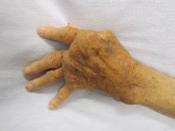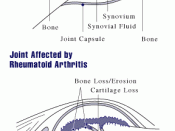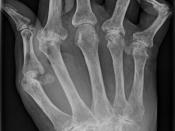The objective of this study was to examine sleep disturbance and how it had an affect on stress reactivity and pain reactivity. Parallel to this objective, the purpose of this study was to test the hypothesis about the role of sleep duration and sleep quality and how it affected a personÃÂs response to pain. The design of the method used included an evaluation of the functioning of men and women with fibromyalgia (FM) or rheumatoid arthritis (RA). There were forty-nine participants and they all were expected to rate and record their level of pain, stress level and the positive or negative affect seven times a day for two days. Also, participants reported their sleep duration and quality every morning. The results found in this study show that sleep disruption was not the main factor of affect. Although sleep played a key part between stress and pain both negatively and positively.
To get more in depth with the design of this study; participants, materials, measures and procedure need to be laid out specifically. Out of the forty-nine participants, 27 had RA (19 women) and 22 with FM (19 women) were recruited. The age ranged from 32 to 79 years of age, 91.8% were Caucasian and majority had some postsecondary education. The participants with RA were usually older and had been diagnosed with condition for more years. The majority were taking at least one type of medication and the most common were nonsterodial drugs.
Included in the materials used, the main method of data collection involved EMA (Stone & Shiffman, 1994). In laments, EMA included multiple assessments of a participantÃÂs daily life in their natural environment. The way they used this method was by supplying all participants with a programmable watch that they wore for the remaining 2 days. This...


